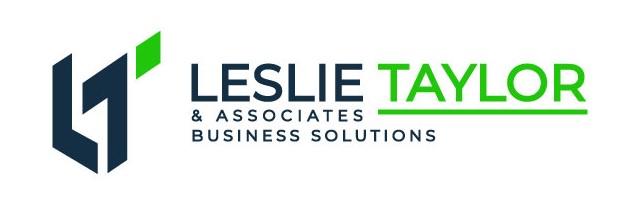Around this time last year, I offered a list of 5 things business owners should take care of at the end of the year to land in a better financial space for the new year.
Last year’s list is still relevant and included here. However, as we quickly move to 2023, I’ve added a few recommendations to help your business navigate and survive our shaky and unpredictable economy.
1. Increase Your Cash Reserves
Conventional wisdom tells us to save and have 3-6 months of personal savings on hand in case of emergency. I recommend the same of my clients in their businesses. At the end of 2022, some are even encouraging businesses to increase reserves beyond 3 to 6 months. How much is best for your business depends on your monthly expenses and business structure.
Everything that contributes to our economy is operating within a level of uncertainty right now, and that includes your business. We just don’t know which way the economy will go (actually, we never know). Prepare in advance in case you have to dip into the savings to pay employees, settle a vendor bill, or replace a laptop that’s so critical to your everyday work. As always, speak with your financial professionals regarding the tax implications.
2. Check Your Contractors and W-9s
Contractors were critical players in many businesses in 2022. If you hired them (non-employees) and they performed more than $600 worth of work for you in a calendar year, you need to collect a W-9 from those
folks. While you may or may not need to file what is called a 1099 for the contractor, I recommend collecting W-9s from your contractors for your records.
Why is this needed?
Because the IRS wants to make sure they get all their money. This process helps them to track all money businesses or individuals receive as contractors or pay to contractors. The flow of cash needs to match your and your contractor’s books. Penalties could apply if all money received is not accounted for and/or for not complying. Learn more about W-9s in my blog HERE.
3. Legally Structure Your Business for Success
The end of the year is a good time to review the legal setup of your business with a professional. If you have been side hustling or freelancing and haven’t set up a legal business entity yet, it’s a good time to ensure your business is protected.
Not forming a separate legal business entity means you are by default a sole proprietor, which means you have unlimited liability. Translation, if anyone sues your business, they can come after your personal assets. Choosing the right legal entity for your situation will affect many things including; how you will pay yourself, how much you can pay yourself, and how much you may owe in taxes.
4. Review Your Receivables
Who owes you money?
It’s a simple question but can significantly impact your business’s financial standing and savings in case of emergency. This is especially true as you navigate the process of wrapping up a business year in economically turbulent times.
Review your client roster and reach out to those who typically pay a little late or ask for a little extra wiggle room to finalize the invoice. To influence timely payments, you might consider offering a small discount to businesses that pay upfront or on time for 6 consecutive months.
Remember, when your money sits in someone elses bank account it can’t go to work for you.
***Quick Tip
Automation and using cloud accounting software such as Xero (others exist, but this one is my favorite) helps my clients get paid faster. Here’s how:
- Sending digital invoices makes it easier for you to request and receive payments by automating the process (less work for you) and making payments as easy as clicking a button for clients. The end result is you get paid sooner!
- Cloud accounting software like Xero can provide real-time insight into how your business is doing and who owes you money so you can keep the cash flowing.
- Lastly, payment reminders can be automated freeing you up to run your biz so you don’t have to chase money.
5. Gather the Docs
If you have been in business for any length of time, you know it is time to get all your documents ready for taxes. This includes:
- Supporting documents for all business expenses (digital or hard copy—but we prefer digital)
- Bank statements
- PPP and EIDL expenses – If you accepted any Federal money during the course of the pandemic you will need to detail how it was spent. Even though you may have received forgiveness, the government reserves the right to audit any recipients in the
- Any owner-contributed expenses – Did you pay for any business items from your personal account? Don’t forget to include these because to not do could cost you money in lost deductions (and you won’t understand your expenses).
- Shiny, clean, up-to-date financials so your tax pro has solid information to use when they work their magic.
6. Are You Set Up to Minimize Taxes (legally)?
The end of the year is a great time to check in with your tax professional to see if adjustments need to be made in how you file taxes. Be aware that your tax professional will be able to do their best work if your financials are accurate and up to date.
Based on your business’s growth and overall household situation, it may be time to update how you file taxes. For example, perhaps you can best minimize your taxes by having your LLC file as an S-corp instead of filing as a sole proprietorship.
It might be a good time to check in with your tax pro and get an estimate of how much you might owe in taxes so you can be prepared. There may be steps you want to take before the year ends. For instance, if you made considerably more than you anticipated, you may need to act before the end of the year or early next year to minimize how much you will owe.
7. Use Data to Make Financial Decisions, Not Whims
You’ve been eyeing that new office chair for the last 6 months. Now, it’s on a holiday sale! Should you get it?
What do the numbers tell you? Have you recently lost a client or two that will affect your business income in the next few months? Do you have enough savings to cover costs if you lose another client at the beginning of the year? Do you have just enough to cover the coming tax bill? Will the chair improve your productivity?
Does it make true financial sense to spend the money? Be realistic and practical in your spending!
8. Plan and Dream Your Best Year Ever!
Considering the previous suggestion concerning the chair, this step is my favorite and is so much fun! I like to make low, medium, and high estimates of what the next year will bring. Just be sure to have realistic plans that are grounded in numbers.
Most importantly in your plan, consider what the business will do for you (beyond increasing your bank account)! Remember, the business exists to serve not only your clients but you the owner.
Need help taking the steps above? We can help.
As business solutions experts, we have helped dozens of businesses untangle complex issues and clarify a path to greater profitability. Schedule a Discovery Session with us today.
If you’ve enjoyed this blog, and you’d like some additional tips to help your business be better or to help you be better at business you MUST get a copy of my FREE video training guide to learn how to stop the money leaks in your business.
It’s called Stop the Money Leaks In Your Business: The 5 Money-Related Mistakes Entrepreneurs Make and How to Fix them. In it, I share the top 5 mistakes entrepreneurs make that keep them from realizing their full profitable potential. This is in fact where I start with my new 1:1 clients. Grab a FREE copy of the guide by going to the link above.

